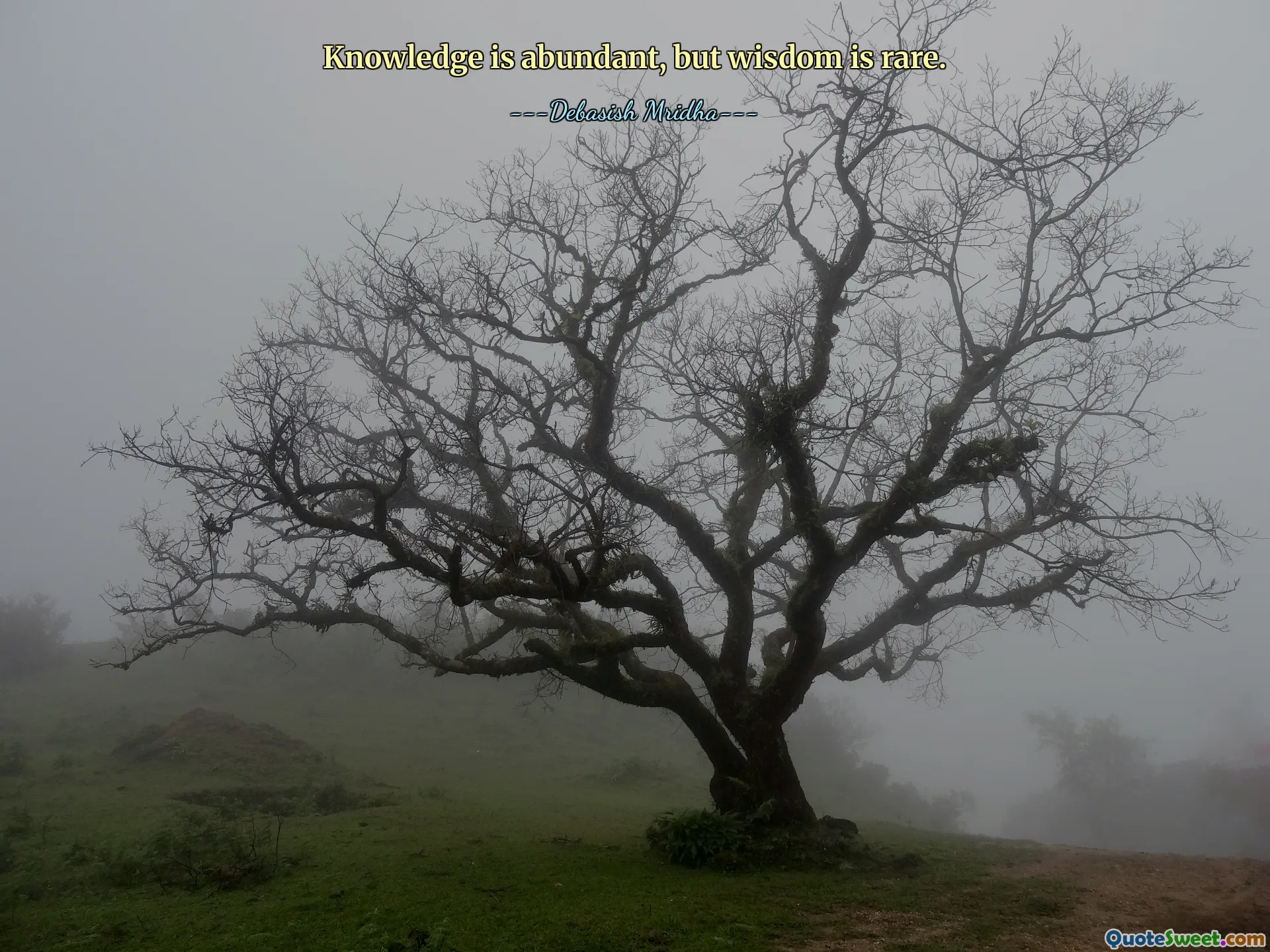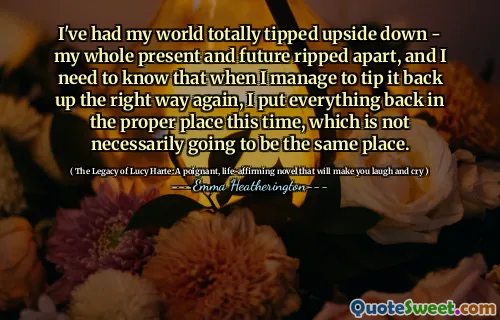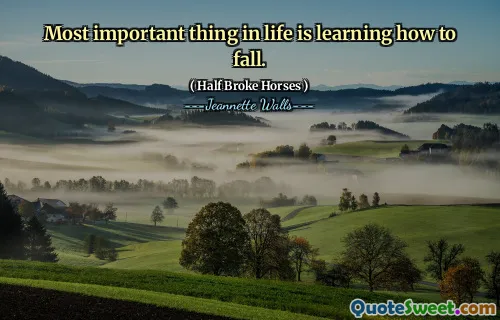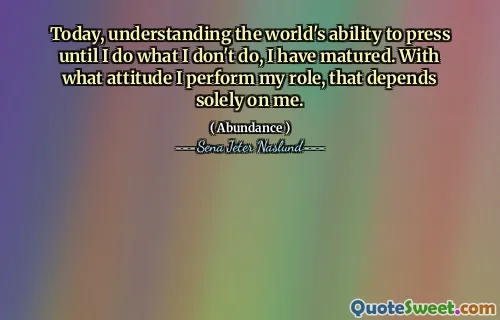
Knowledge is abundant, but wisdom is rare.
The quote "Knowledge is abundant, but wisdom is rare" eloquently differentiates between two closely related yet distinct concepts: knowledge and wisdom. In today's world, where information is readily accessible—thanks to technology and the internet—we are often overwhelmed with knowledge. This knowledge constitutes facts, data, and raw information accumulated by us or others through education and experience. However, possessing knowledge does not inherently translate to having wisdom. Wisdom is the profound ability to discern, apply, and integrate knowledge with insight and good judgment. It involves understanding when and how to use what we know in meaningful ways that benefit ourselves and others.
Reflecting on this, we realize that knowledge can be acquired relatively easily, but developing wisdom requires deliberate effort, experience, and empathy. It often necessitates a deeper awareness of life's complexities and ethical considerations, traits that cannot simply be learned but must be cultivated over time. This distinction highlights a vital point: to lead a successful, fulfilling life, it’s not enough to be well-informed; one must also be wise.
Moreover, wisdom often encompasses an appreciation of ambiguity and uncertainty, whereas knowledge tends to seek certitude and facts. Wisdom bridges the gap between cognitive understanding and emotional intelligence, enabling us to navigate life's challenges gracefully. In essence, the rarity of wisdom amidst abundant knowledge reminds us to pursue thoughtful reflection, ethical consideration, and balanced judgment. This pursuit enriches our decisions and relationships, fostering personal growth and societal harmony.
---Debasish Mridha---











